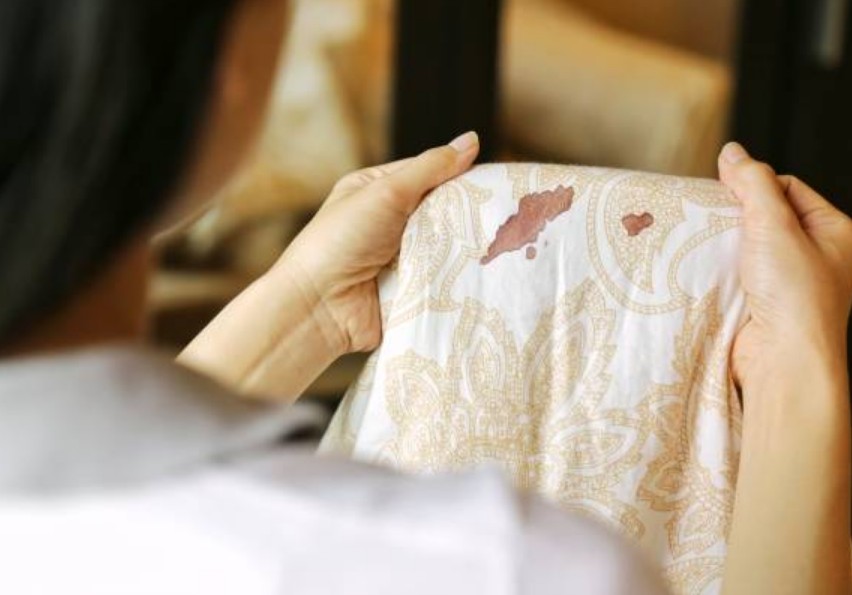
7 Causes of Bleeding After Sex: What It Means, When to Worry - Gynaecologist Explains
Bleeding after sex can alarm anyone, but this condition affects more people than commonly believed. Medical professionals call this postcoital bleeding, and it stems from various causes that range from minor issues to serious health concerns.
Dr Kajal Singh, Associate Professor at the Obstetrics and Gynaecology Department of NIIMS Medical College and Hospital, explains that people of almost any age can experience this condition. Understanding the causes helps determine when medical attention becomes necessary.
What Is Postcoital Bleeding?
Postcoital bleeding occurs when blood appears after sexual intercourse. This medical term describes a symptom rather than a disease itself. The bleeding can range from light spotting to heavier flow, and its severity often indicates the underlying cause.
Main Causes of Bleeding After Sex

Cervical Problems and Irritation
The cervix is a highly sensitive area that can become easily irritated. Inflammation, infections, or benign growths, such as polyps, can affect this delicate tissue. These conditions often cause spotting after sexual activity.
Cervical polyps, though typically benign, create surfaces that bleed easily when touched during intercourse. Similarly, cervical inflammation from various sources can make the tissue more prone to bleeding.
Vaginal Dryness
When natural lubrication lacks adequate levels, friction increases during intercourse. This friction can create microtears in the vaginal lining, which then bleed.
Women who are menopausal or breastfeeding particularly experience this issue. Hormonal changes during these periods reduce natural moisture production, making the vaginal tissues more vulnerable to injury.
1
2
3
4
Experiencing bleeding after intercourse can be alarming, but it’s not always a cause for immediate concern. Dr Amita Shah, Chairman and Head of the Department of Obstetrics and Gynaecology at Manipal Hospital, Gurugram, explains that light bleeding or spotting after sex is often benign. Common reasons include vaginal dryness, which can cause friction and minor tears, especially during menopause or breastfeeding, vigorous intercourse, or insufficient lubrication. Increased blood flow to the cervix during ovulation or pregnancy can also lead to slight bleeding due to cervical sensitivity.
However, Dr Shah cautions that persistent or heavy bleeding should not be ignored, as it might indicate more serious issues like cervical polyps, fibroids, or, in rare cases, cervical or endometrial cancer. She advises that anyone experiencing frequent bleeding, pain, or unusual discharge consult a healthcare provider for proper evaluation and peace of mind.
Sexually Transmitted Infections (STIs)
Several STIs cause inflammation in reproductive tissues. Chlamydia, gonorrhea, and trichomonas commonly create cervical or vaginal inflammation that leads to postcoital bleeding.
These infections irritate sensitive tissues and make them more likely to bleed during or after sexual contact. Early detection and treatment of STIs prevent more serious complications.
Prolonged Sexual Activity
Intense sexual activity without adequate lubrication can traumatise vaginal tissues. Even slight injuries to these delicate areas can result in bleeding.
The vaginal walls and cervix can sustain minor damage when friction exceeds the tissue's tolerance. This cause often resolves with gentler approaches and proper lubrication.
Hormonal Factors and Contraceptives
Hormonal fluctuations affect vaginal and cervical tissues in various ways. Birth control pills, hormone therapy, and irregular menstrual cycles can all contribute to spotting after sex.
These hormonal changes alter tissue thickness and moisture levels, making bleeding more likely during intimate contact. Missed periods or hormonal imbalances create similar effects.
Medications and Medical Treatments
Certain medications thin the blood or affect tissue integrity. Blood thinners, antibiotics, and hormonal treatments can increase the risk of bleeding.
Medical treatments like radiation therapy or certain procedures also make tissues more fragile and prone to bleeding after minimal trauma.
Don't Miss: Never Had Sexual Relationships? Here’s How It May Impact Your Health
Cervical or Vaginal Cancer
Though rare, cancers of the cervix or vagina can present with postcoital bleeding as an early symptom. These serious conditions require immediate medical attention and professional diagnosis.
Cancer changes tissue structure and makes it more likely to bleed with contact. However, this cause remains uncommon compared to other factors.

When Medical Attention Becomes Necessary
Seek medical care when:
- Bleeding occurs frequently after sexual activity
- Heavy bleeding accompanies pain or discomfort
- Unusual discharge or strong odours develop
- Postmenopausal women experience any bleeding after sex
- Previous abnormal Pap smears create additional risk factors
Dr Singh emphasises that bleeding after sex "isn't always serious, but it's worth paying attention to, especially if it happens regularly."
Prevention and Management
Regular gynaecological checkups help maintain reproductive health and catch problems early. Many causes of postcoital bleeding respond well to treatment once properly diagnosed.
Don't Miss: The Silent Trauma: Addressing Psychosexual Health In Gynecologic Cancer Survivors
Keep reading Herzindagi for more such stories.
Image Courtesy: Freepik
1
2
3
4